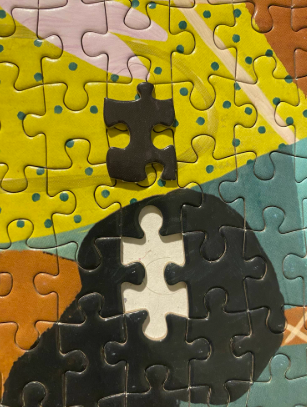Belonging
From birth on, humans feel the need to belong because belonging is deeply rooted in how we were made, in our biology and psychology. It is not just a social preference — it is a survival mechanism. Belonging is not just about fitting in or being liked — it is a fundamental human need. From our earliest ancestors to modern workplaces and communities, the desire to connect with others has shaped who we are and how we live. Examples of belonging include being part of a family, a sports team, a professional group, a community, or a group of friends with shared interests. It involves feeling accepted, supported, and connected to others through shared experiences, relationships, and a common sense of purpose. Here are some possible reasons why that need runs so deep.
History has revealed that early humans survived by living in groups. Being part of a tribe meant protection, shared resources, and better chances of passing on genes. Those who were accepted and connected had higher survival rates — so the instinct to belong became part of human nature.
Belonging gives people a sense of safety and stability. When we feel connected to others, our brains release chemicals like oxytocin and dopamine — the “feel-good” hormones — which reduce stress and reinforce trust and connection. Being excluded or isolated, on the other hand, activates the same brain regions as physical pain.
Belonging helps shape who we are. We define ourselves partly through our relationships and communities — families, teams, cultures, religions, or causes. Feeling part of something larger gives life a sense of purpose and coherence.
Humans are social creatures. Support, acceptance, and love help us regulate our emotions, cope with hardship, and celebrate success. A lack of belonging often leads to loneliness, anxiety, or depression.
However, have you ever felt like you were the last piece of a puzzle but did not fit or belong? I know I have, many times in my life, from the gym to the board room and every space in between. I imagine that most people have felt that way at some point or points — like they almost belong, but something does not quite align. It is that feeling of being surrounded by others yet somehow separate, as if you were made for connection but cannot find where you fit. This could be in the corporate world, your social sphere or even in your family. When you feel like you do not belong, it can touch something very deep inside you. That feeling of disconnection can make you doubt your worth, but it is also a sign that you long for connection — and that is a profoundly human thing.
It is easy to think, “Something must be wrong with me.” But often, it is simply that you are in a space that does not yet reflect who you are or where you are growing. You might just be between puzzles — not missing a piece.
That “last puzzle piece” feeling often comes during times of transition — starting a new job, moving to a new place, or being part of a group that does not yet understand you. It can stir up loneliness or self-doubt, but it is also a sign of your awareness — that you want connection, purpose, and alignment.
The feeling of not belonging can also come with age and maturing. Sometimes it means the puzzle around you is not the right one and you can decide where you want and need to fit. Other times, it means your edges are still being shaped by growth, waiting to find the right fit.
If the space around you does not fit, it is okay to look beyond it. Seek out people, places, or projects that align with your morals and values. Sometimes, you do not find belonging — you create it by showing others they belong too. Eventually, the right place appears. And when that happens, you realize the waiting, the wondering, and even the not-fitting were all part of finding where you truly belong.
Take care of yourself and each other!
